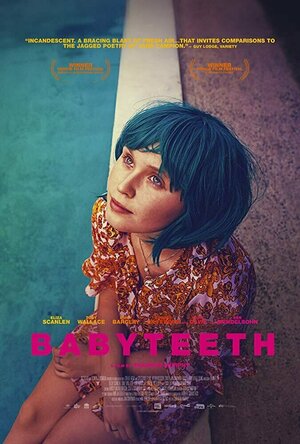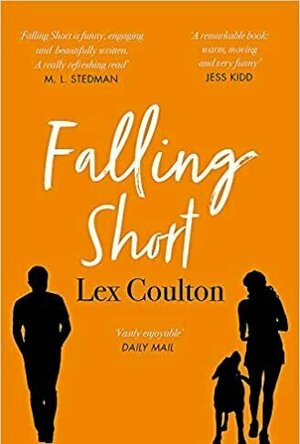
Use Your Handwriting
Productivity and Utilities
App
Use Your Handwriting® (UYH®) lets you finger write quick notes, lists and messages on your iPhone...

Yoga with Gotta Joga - Hatha & Meditation Classes
Health & Fitness and Sports
App
Get closer to your true nature with Gotta Joga ! Our yoga programs are carefully planned for...

Anytune Pro+
Music and Education
App
New! Checkout ReFrame Audio Isolation - anytune.us/reframe Slow down music, choose the perfect...

Bobclass - Appointment scheduling, client tracking
Business and Productivity
App
Bobclass is an all-in-one productivity app for instructors, tutors, trainers, coaches and other...
Bob Mann (459 KP) rated Babyteeth (2019) in Movies
Aug 25, 2020
Eliza Scanlen plays Australian schoolgirl Milla, displaying typically rebellious symptoms of adolescence but hampered by a crippling medical issue. She meets a 23-year old drug addict, Moses (Toby Wallace), and the pair feel an immediate pull towards each other, much to the horror of her parents Henry (Ben Mendelsohn) and Anna (Essie Davis). The kids are dysfunctional (for different reasons); the parents are not much better. Adding to the drama is a strange violin teacher (Eugene Gilfedder) and a pregnant (MILF-to-be) next door neighbour (Emily Barclay). We follow the life and love of Milla as she struggles with her circumstances... and the last of her Babyteeth.
I can draw parallels here to the movie "Animals" from last year. Indeed to the Oscar-winner "Moonlight" from four year's ago. I could readily perceive it to be intelligent and artfully produced. But I'm afraid I felt zero empathy or pull from any of the characters. Given that, and the slow burn of writer Rita Kalnejais's screenplay, I found myself constantly looking at my watch for the last half-hour of the movie.
The movie's not without its merits though. Babyteeth has picked up a number of nominations, and as many wins, on the international film-festival circuit, mostly for the direction of Shannon Murphy. This is a first-time feature for TV-director Murphy (she directed two episodes from this year's series of "Killing Eve" for example). Awards have also gone to Toby Wallace for his portrayal of the slightly unhinged and unpredictable Moses. But for me, it was Eliza Scanlen's performance as Milla that appealed to me most and kept my attention. Other-worldly and slightly ethereal, she pulls off the role well. Scanlen was of course Beth March in the recent superb version of "Little Woman". (She's a young lady with great potential, but she needs to be careful not to get typecast as sickly waifs!)
Babyteeth was for me a curate's egg in the photography department. Cinematography was by Andrew Commis, and I found it both breathtaking and frustrating in almost equal measure. There's a scene towards the end of the movie with Milla's face half-lit in the moonlight that was reminiscent to me of the star-child in "2001: A Space Odyssey". Simply gorgeous. And scenes in a nightclub are both strangely and effectively shot. But - and art-house movies seem to mandate this approach - the movie is shot on handheld cameras. This makes a lot of the shots drift in and out of focus. Moreover - and most frustratingly for me - it makes the multitude of scene titles, employed in the telling, float ever-so-slightly against the backgrounds, with a generally nauseating effect.
I'll no doubt feel a right Charlie if Babyteeth gets into the Oscars nominations short-list. But for me, it just wasn't engaging enough to be entertaining. It's billed as a "Comedy Drama". While there were a few good comic lines, it rarely made me do more than smile. And as for the drama, I'm afraid tears were far from being spilled. It's in no way a "bad film": it just personally wasn't for me.
(For the full graphical review please check out One Mann's Movie on https://bob-the-movie-man.com/2020/08/25/babyteeth-you-might-have-more-fun-at-the-orthodontists/.)
Ivana A. | Diary of Difference (1171 KP) rated Falling Short in Books
Oct 2, 2020
About the book:
Frances Pilgrim’s father went missing when she was five, and ever since all sorts of things have been going astray: car keys, promotions, a series of underwhelming and unsuitable boyfriends . . . Now here she is, thirty-bloody-nine, teaching Shakespeare to rowdy sixth formers and still losing things.
But she has a much more pressing problem. Her mother, whose odd behaviour Frances has long put down to eccentricity, is slowly yielding to Alzheimer’s, leaving Frances with some disturbing questions about her father’s disappearance, and the family history she’s always believed in. Frances could really do with someone to talk to. Ideally Jackson: fellow teacher, dedicated hedonist, erstwhile best friend. Only they haven’t spoken since that night last summer when things got complicated . . .
As the new school year begins, and her mother’s behavior becomes more and more erratic, Frances realizes that she might just have a chance to find something for once. But will it be what she’s looking for?
My thoughts:
I am usually good at explaining why I don’t like a certain book, or why I feel the way I feel, and believe me, with this one, I have spent two days and 6 sittings in front of this draft (now published post) to try and write about it. So I am doing my best now…
First of all, there has to be something about a certain book to make me want to read it. With this one – there were two things:
I love romance and intrigue, and the blurb promised two people not really talking to each other, but sparks flying around… so yes, that got me.
The Alzheimer’s disease – as a person that has worked with people suffering from Dementia and Alzheimer’s, this subject is very close to my heart. I couldn’t miss this book for this reason.
Now – the romance part disappointed me, as there was no romance. No romance at all. Unless, of course, you count as a romance a person in their mid-forties sleeping around with drunk teens, and is then too complicated of a character to even realise who he loves, and why, and the moment he does, he still has no idea what to do with that information.
The other disappointment I had was that I expected to read about the Alzheimer’s, and not only that they weren’t there, but also some of the symptoms mentioned were not correct at all. There were only sex relationships and sex scenes, and that was supposed to define their relationship in the end. Not realistic at all.
Even though it seems that we follow Frances’s story throughout, we actually follow Jackson’s story as well. Their characters were too complicated and confusing for me, and it let me to now feel nor care about them at all. I honestly cared about Frances’s dog the most in this book.
The plot wasn’t perfect – there were times when the information given didn’t match.
[SPOILER ALERT]
The scene how Frances searches on Google to find the address of her dad. We are then told that she found out his address through Jean. Which one is it, then?
I am actually quite sad that I didn’t enjoy this book, but I will still be curious about new works from Lex Coulton, because, somehow, I really liked her writing style, despite all the flaws.

Vocabulary.com
Education and Reference
App
With its uniquely effective word learning system, the Vocabulary.com app helps you master words...

codeSpark Academy
Education and Games
App
codeSpark Academy with The Foos is the #1 learn to code program for kids 4-9! Our award-winning app...

Learn English - ABA English
Education and Entertainment
App
Do you want to learn English? Do you need to pass the First or Advanced certificate or the TOEFL...


